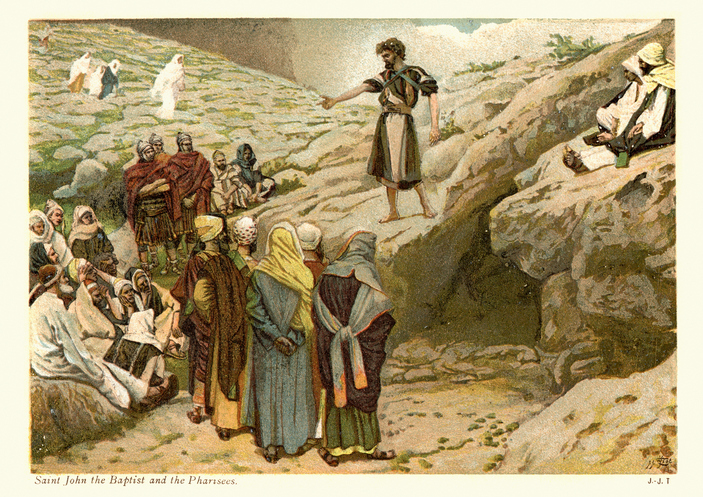During the Jubilee Year of Mercy in 2016, I read a wonderful book by Pope Francis titled, “The Name of God is Mercy.” Actually, I read it three times over the course of a year. The book is the transcript of a long interview the Holy Father did with the Vatican reporter Andrea Tornielli about the Year of Mercy.
The book was comforting and refreshing, but also very challenging, reading it was a kind of examination of conscience. While the entire book really is fantastic, I wanted to share one powerful passage that I think speaks to our journey through this season of self-reflection, penance, and mercy. I would encourage you to read Pope Francis’ words slowly and prayerfully, read them as if he was writing to you personally.
This passage comes from the chapter titled, “Shepherds, not Scholars of the Law.” Pope Francis says:
“We need to enter the darkness, the night in which so many of our brothers live. We need to be able to make contact with them and let them feel our closeness, without letting ourselves be wrapped up in that darkness and influenced by it. Caring for outcasts and sinners does not mean letting the wolves attack the flock. It means trying to reach everyone by sharing the experience of mercy, which we ourselves have experienced, without ever caving in to the temptation of feeling that we are just or perfect.”
While he doesn’t use the word “evangelization,” I think that is precisely what the pope is talking about here. I’ve heard it said that evangelization is one beggar showing another beggar where the bread is. Likewise, I think Pope Francis would say that evangelization is one sinner showing another sinner how to encounter God’s mercy. What’s cool about thinking of evangelization this way is that it’s not complicated and it certainly doesn’t require a theology degree. How have you experienced God’s mercy in your life? How has God saved you from your own sin and suffering? Have you ever shared this story with anyone? The pope continues:
“The more conscience we are of our wretchedness and our sins, the more we experience the love and infinite mercy of God among us, and the more capable we are of looking upon the many “wounded” we meet along the way with acceptance and mercy.”
Shortly after being elected pope, Francis was asked: “Who is Jorge Bergoglio?” And his response was, “I am a sinner. This is the most accurate definition. It is not a figure of speech, a literary genre. I am a sinner.” The Holy Father says that it is a true grace for someone to feel like a sinner and that if we don’t feel that way then we should ask God for the grace to feel like a sinner. It is only as a sinner that we can experience God’s infinite mercy, it is only in our weakness and humility that we can truly know God’s greatness. If I am not a sinner then I have no need for a Savior. Recognizing oneself as a sinner is also one of the first steps of evangelization, the pope says:
So we must avoid the attitude of someone who judges and condemns from the lofty heights of his own certainty, looking for the splinter in his brother’s eye while remaining unaware of the beam is his own. Let us always remember that God rejoices more when one sinner returns to the fold than when ninety-nine righteous people have no need of repentance. When a person begins to recognize the sickness in their soul, when the Holy spirit – the Grace of God – acts within them and moves their heart toward an initial recognition of their own sins, he needs to find an open door, not a closed one. He needs to find acceptance, not judgment, prejudice, or condemnation. He needs to be helped, not pushed away or cast out. Sometimes when Christians think like scholars of the law, their hearts extinguish that which the Holy Spirit lights up in the heart of a sinner who stands at the threshold, when he starts to feel nostalgia for God.
This passage reads like an examination of conscience. I find myself quick to judge someone else’s faults. Too often I act like a “scholar of law” who stands on a self-righteous pedestal judging others. It’s easy for us to treat people as “the other,” as enemies in a culture war, as bad Catholics, instead of Children of God. But judging other from “lofty heights” is the opposite of evangelization.
It’s easy for us to judge the young unmarried couple bringing their baby to be baptized, the couple who lived together before their wedding, the couple you know is using contraception, the person with outrageous and ignorant Facebook posts, the person with the Other Party’s bumper sticker in the church parking lot, etc, etc. I use all of these examples because these are ways I have judged others in the past. “These people” aren’t enemies in a culture war, these are the “lost sheep” who Jesus rejoices over more than the ninety-nine who never strayed.
Pope Francis is telling us that we can only stop judging others and start loving them when we have the humility to see ourselves as the greatest sinner in the room. The Holy Father said, “Every time I go through the gates into a prison to celebrate Mass or for a visit, I always think: Why them and not me? I should be here. I deserve to be here. Their fall could have been mine.”
The Year of Mercy is long over, but during this penitential season of Lent let us pray for the humility of Pope Francis and the courage to share God’s mercy with those who have fallen away from the Church. Let us pray for the tremendous grace to see ourselves as sinners so that we may fully encounter the God whose name is Mercy.
Durante el Año del Jubileo de la Misericordia en 2016 leí un estupendo libro del papa Francisco titulado: “El nombre de Dios es Misericordia”. De hecho, lo leí tres veces en el transcurso de un año. El libro es una transcripción de una extensa entrevista que el papa Francisco le concedió al reportero Andres Tornielli acerca del Año de la Misericordia.
El libro fue reconfortante y alentador, pero también muy desafiante, y su lectura fue una especie de examen de conciencia. Aunque todo el libro realmente es fantástico, me gustaría compartir un pasaje conmovedor que creo que habla de nuestro recorrido por esta temporada de autoreflexión, penitencia y misericordia. Te animo a leer las palabras del papa Francisco lentamente y en oración, a leerlas como si te estuviera escribiendo personalmente.
Este pasaje proviene de un capítulo llamado, “Pastores, no doctores de la Ley”. El papa Francisco dice:
“Tenemos que entrar en la oscuridad, en la noche que viven tantos hermanos nuestros. Debemos ser capaces de entrar en contacto con ellos, de hacer notar nuestra cercanía, sin dejarnos envolver ni condicionar por esa oscuridad. Preocuparse por los marginados y los pecadores no significa permitir que los lobos ataquen el rebaño. Significa tratar de llegarles a todos dando testimonio de la misericordia, de esa que hemos experimentado nosotros en primer lugar, sin caer jamás en la tentación de sentirnos como los justos o los perfectos”.
Aunque el papa no usa la palabra “evangelización”, creo que eso es precisamente de lo está hablando aquí. He oído decir que la evangelización es un mendigo mostrándole a otro mendigo dónde está el pan. Del mismo modo, creo que el papa Francisco diría que la evangelización es un pecador mostrándole a otro pecador cómo encontrar la misericordia de Dios. Lo bueno de pensar en la evangelización de esta manera es que no es complicado y, ciertamente, no se requiere tener un título en teología. ¿Cómo has experimentado la misericordia de Dios en tu vida? ¿Cómo te ha salvado Dios de tu propio pecado y sufrimiento? ¿Alguna vez has compartido esta historia con alguien? El papa continúa:
“Cuanto más viva está la conciencia de nuestra miseria y de nuestros pecados, más experimentamos el amor y la infinita misericordia de Dios sobre nosotros, y tanto más somos capaces de estar frente a los muchos «heridos» que encontramos en nuestro camino con una mirada de bienvenida y misericordia”.
Poco después de ser elegido Papa, le preguntaron a Francisco: “¿Quién es Jorge Bergoglio?”. Y su respuesta fue: “Yo soy un pecador. Esta es la definición más precisa. No es una figura retórica ni un género literario. Soy un pecador”. El Santo Padre dice que es una verdadera gracia para alguien sentirse un pecador, y que si no nos sentimos de esa manera entonces debemos pedirle a Dios la gracia de sentirnos pecadores. Solo como pecadores podemos experimentar la misericordia infinita de Dios, y solo en nuestra debilidad y humildad podemos conocer verdaderamente la grandeza de Dios. Si no somos pecadores, entonces no tenemos la necesidad de un Salvador. El reconocimiento de nosotros mismos como pecadores es también uno de los primeros pasos de la evangelización, dice el Papa.
Por eso debemos evitar la actitud de alguien que juzga y condena desde las alturas excelsas de su propia certeza buscando la astilla en el ojo de su prójimo, mientras no está consciente de la viga en el suyo. Recordemos siempre que Dios se regocija más cuando un pecador regresa al rebaño que cuando 99 personas justas no tienen necesidad de arrepentimiento. Cuando una persona comienza a reconocer la enfermedad en su alma, cuando el Espíritu Santo -la gracia de Dios- actúa dentro de ella y mueve su corazón hacia un reconocimiento inicial de sus propios pecados, necesita encontrar una puerta abierta, no una cerrada. Necesita encontrar la aceptación, no el juicio, el prejuicio, o la condenación. Necesita ser ayudada, no ser alejada o expulsada. A veces, cuando los cristianos piensan como doctores de la ley, sus corazones extinguen lo que el Espíritu Santo ilumina en el corazón de un pecador que está en el umbral, cuando comienza a sentir nostalgia por Dios.
Este pasaje se lee como un examen de conciencia. Soy rápido para juzgar las falencias del otro. Muy a menudo actúo como un “doctor de la ley” que se encuentra en un pedestal con derecho propio para juzgar a otros. Es fácil para nosotros tratar a la gente como “el otro”, como enemigos en una guerra cultural, como malos católicos, en lugar de tratarlos como hijos de Dios. Pero juzgar a otros desde “alturas excelsas” es lo opuesto a la evangelización.
Es fácil para nosotros juzgar a la joven pareja soltera que lleva a bautizar a su bebé; a la pareja que vivió junta antes de su boda; a la pareja que uno sabe que está usando métodos anticonceptivos; a la persona con mensajes escandalosos e ignorantes en Facebook; a la persona que tiene un sticker del Otro Partido en el parachoques en el estacionamiento de la iglesia, etc, etc. Utilizo todos estos ejemplos porque son formas en las que he juzgado a otros en el pasado. “Estas personas” no son enemigas en una guerra cultural, estas son las “ovejas perdidas” por las que Jesús se regocija más que por las 99 que nunca se apartaron.
El papa Francisco nos está diciendo que solo podemos dejar de juzgar a los demás y empezar a amarlos cuando tengamos la humildad de vernos a nosotros mismos como los más grandes pecadores. El Santo Padre dijo, “Cada vez que paso por las puertas a una prisión para celebrar una misa o para una visita, siempre pienso: ¿Por qué ellos y no yo? Debería estar aquí. Merezco estar aquí. Su caída podría haber sido la mía”.
El año de la misericordia ya ha terminado, pero durante esta temporada penitencial de la Cuaresma oremos por la humildad del papa Francisco y por el valor de compartir la misericordia de Dios con aquellos que se han alejado de la iglesia. Oremos por la tremenda gracia de vernos a nosotros mismos como pecadores para que podamos encontrar plenamente al Dios cuyo nombre es Misericordia.
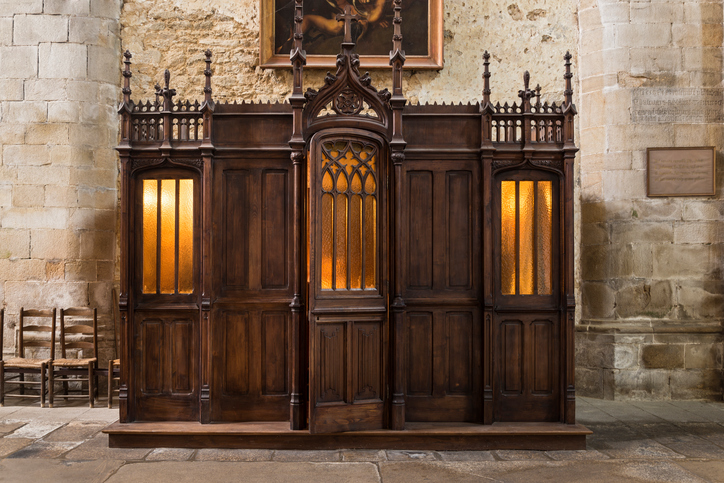
 Paul Fahey is a husband, father, and a parish director of religious education. He is a student of Theology, History, and Catholic Studies. If you like what he has to say, check out his blog,
Paul Fahey is a husband, father, and a parish director of religious education. He is a student of Theology, History, and Catholic Studies. If you like what he has to say, check out his blog, 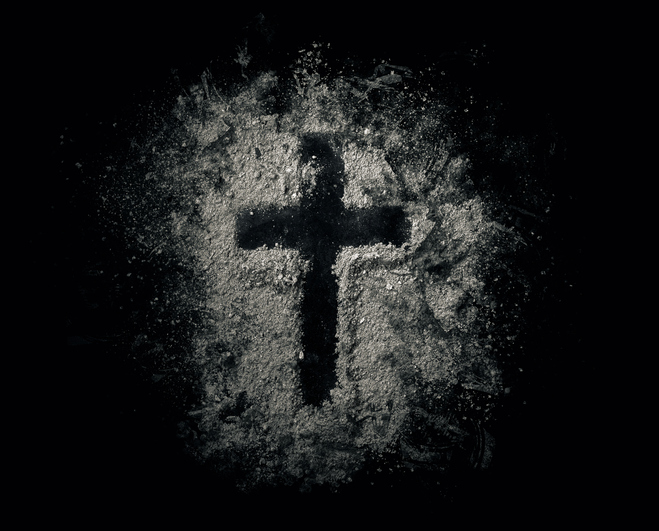
 Tami Urcia spent early young adulthood as a missionary in Mexico, while simultaneously studying Theology and Philosophy in Spanish. She has worked in Family Life Ministry at both the diocesan and parish levels. She currently works for Diocesan, is a freelance translator and blogger. She and her Peruvian husband are raising their children bilingual and love sharing reflections of life, love and everything in between. Find out more about her here:
Tami Urcia spent early young adulthood as a missionary in Mexico, while simultaneously studying Theology and Philosophy in Spanish. She has worked in Family Life Ministry at both the diocesan and parish levels. She currently works for Diocesan, is a freelance translator and blogger. She and her Peruvian husband are raising their children bilingual and love sharing reflections of life, love and everything in between. Find out more about her here: 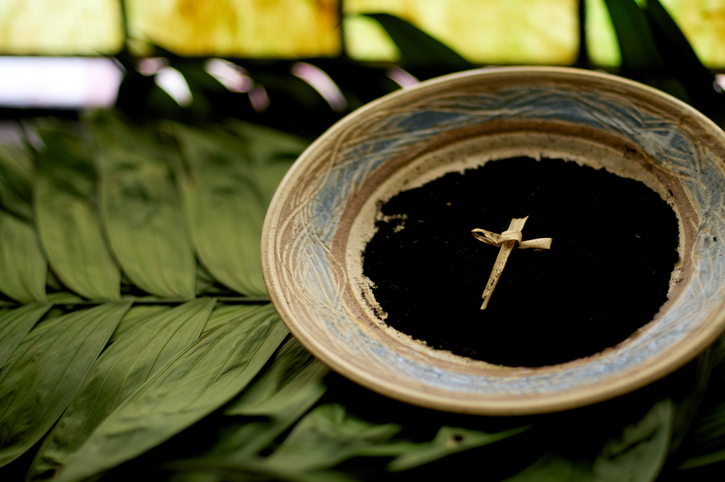
 As Diocesan Publications’ Solutions Evangelist, Tommy is committed to showing parish and diocesan staffs how to use our communication tools to their best advantage. He has worked for years in various, youth ministry, adult ministry, and diocesan roles. As an expert on Catholic communication, Tommy uses his parish and diocesan experiences to help you make your ministry effective. To bring Tommy to your parish or for general inquiry, contact him at
As Diocesan Publications’ Solutions Evangelist, Tommy is committed to showing parish and diocesan staffs how to use our communication tools to their best advantage. He has worked for years in various, youth ministry, adult ministry, and diocesan roles. As an expert on Catholic communication, Tommy uses his parish and diocesan experiences to help you make your ministry effective. To bring Tommy to your parish or for general inquiry, contact him at 
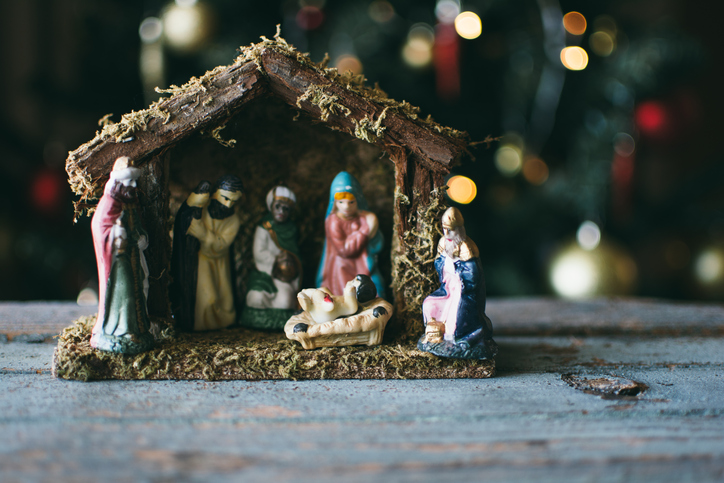
 Sr.
Sr. 
 Sr. Kathryn J. Hermes, FSP is a compassionate mentor and guide. Through her writing and online ministry she takes others along with her on her own journey of spiritual transformation, specializing in uncovering in the difficult moments of life where God’s grace is already breaking through. Connect with her website and blog:
Sr. Kathryn J. Hermes, FSP is a compassionate mentor and guide. Through her writing and online ministry she takes others along with her on her own journey of spiritual transformation, specializing in uncovering in the difficult moments of life where God’s grace is already breaking through. Connect with her website and blog: 
 As Diocesan Publications’ Solutions Evangelist, Tommy is committed to showing parish and diocesan staffs how to use our communication tools to their best advantage. He has worked for years in various, youth ministry, adult ministry, and diocesan roles. As an expert on Catholic communication, Tommy uses his parish and diocesan experiences to help you make your ministry effective. To bring Tommy to your parish or for general inquiry, contact him at
As Diocesan Publications’ Solutions Evangelist, Tommy is committed to showing parish and diocesan staffs how to use our communication tools to their best advantage. He has worked for years in various, youth ministry, adult ministry, and diocesan roles. As an expert on Catholic communication, Tommy uses his parish and diocesan experiences to help you make your ministry effective. To bring Tommy to your parish or for general inquiry, contact him at 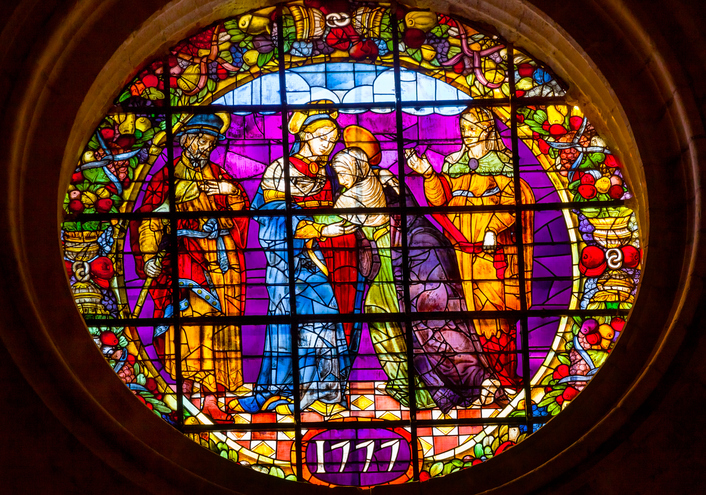
 “
“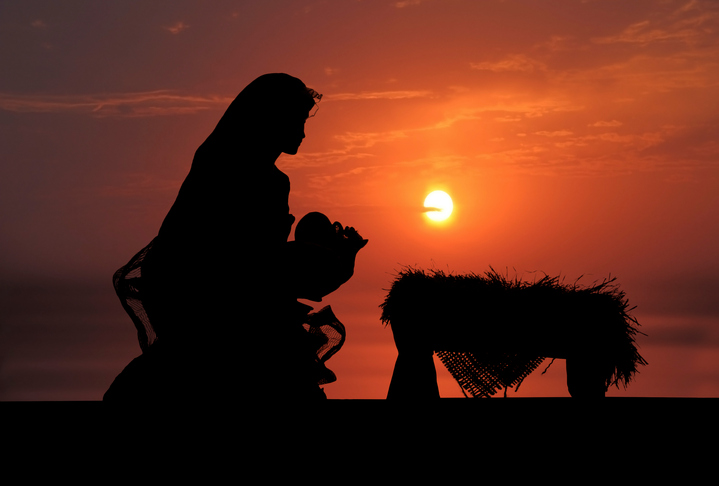
 Paul Fahey is a husband, father, and a parish director of religious education. He is a student of Theology, History, and Catholic Studies. If you like what he has to say, check out his blog,
Paul Fahey is a husband, father, and a parish director of religious education. He is a student of Theology, History, and Catholic Studies. If you like what he has to say, check out his blog, 
 Beth Price is a Secular Franciscan (OFS) and spiritual director who has worked in several parish ministry roles during the last 20 years. She is a proud mother of 3 adult children. Beth currently works at Diocesan.
Beth Price is a Secular Franciscan (OFS) and spiritual director who has worked in several parish ministry roles during the last 20 years. She is a proud mother of 3 adult children. Beth currently works at Diocesan.
 Sr. Marianne Lorraine Trouve’ has been a member of the Daughters of Saint Paul since 1976. She has an MA in theology from the University of Dayton and has served on the editorial staff of Pauline Books & Media for over 20 years. She is the author of several books, including
Sr. Marianne Lorraine Trouve’ has been a member of the Daughters of Saint Paul since 1976. She has an MA in theology from the University of Dayton and has served on the editorial staff of Pauline Books & Media for over 20 years. She is the author of several books, including